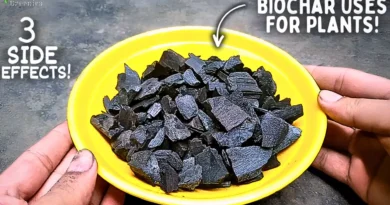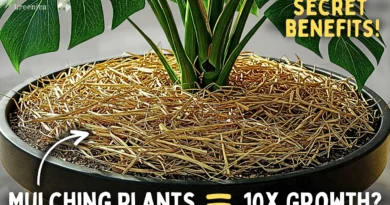BENEFITS of Mulching For Plants! – How To Do The Mulching Correctly?
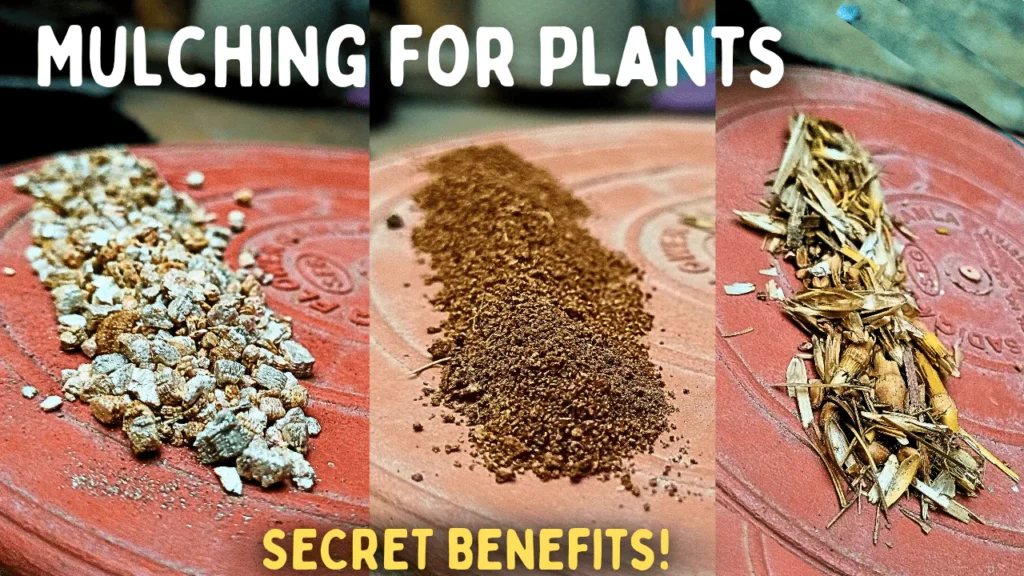
Mulching Plants can be Super Beneficial, In This Post, We Will See all About Mulching Benefits For plants, How Its Done, What can Be Used as Mulch & What Side Effects We Can face, So keep Reading.
What is Mulching, How its Done?
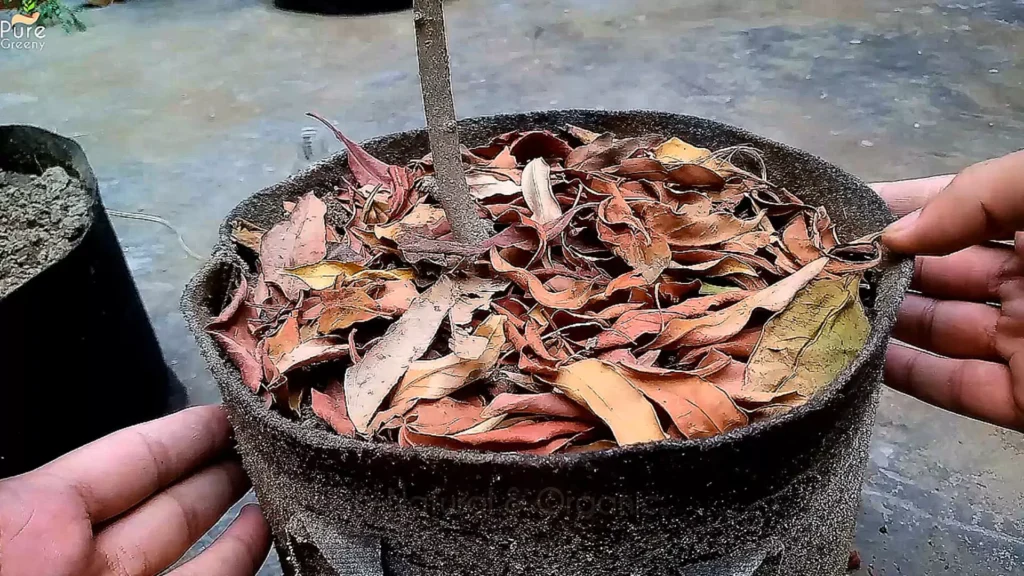
Mulching means Making a layer of Organic or Inorganic Matter Over The Soil Surface, That Works As a Protective Layer & Provide Us Several Benefits. Its a Natural technique, for Instance, Plants Drops Their Leaves as The Season Changes, This Layer of leaves on The Soil Works as a protective layer, helping In So many Ways.
What Are The benefits Of Mulching?
Following Are The Some benefits of Mulching For Plants.
Lesser Soil Drying:
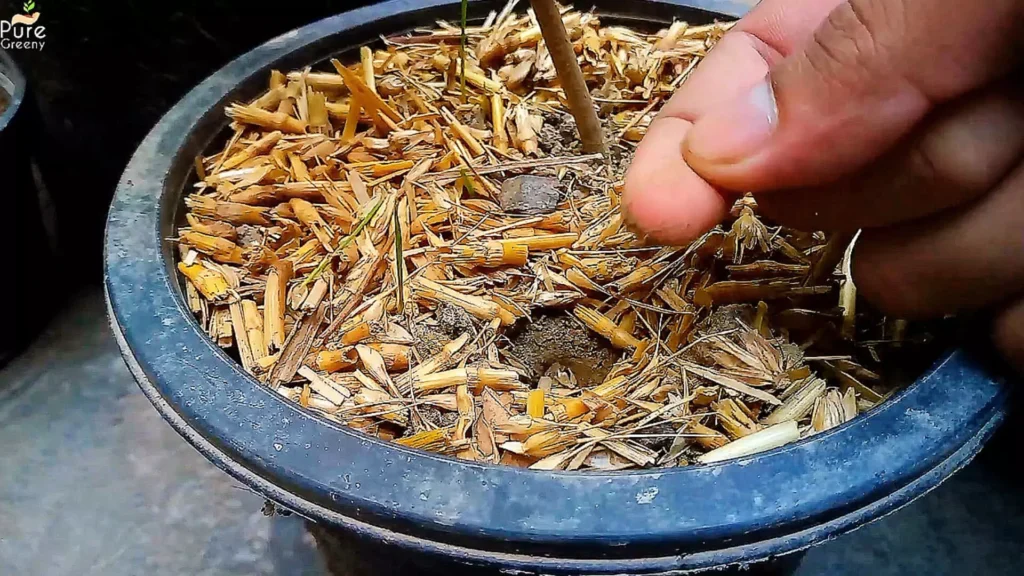
The first benefit of mulching plants is The Water Retention, The layer of Mulch Reduces The Drying of Water, This Is Very Useful For Dry Areas, & For The plants That likes More Moisture, So Mulching Can Maintain a Good Moisture level In The Soil, Resulting In Better Plant Growth.
Better Microbial Life:
Another Big Use of Mulching is The Better Microbial Activity, Beneficial Bacteria Grow Very Well under a layer of Mulch. So This Could be Very Helpful For organic vegetable Gardening.
Protect Soil Media:
Mulching Also Protects The Soil Media, It Saves The Soil from Erosion, Compaction & unfertility. Your Soil Will be Loose & fertile, Due To Mulching.
More Nutrition:
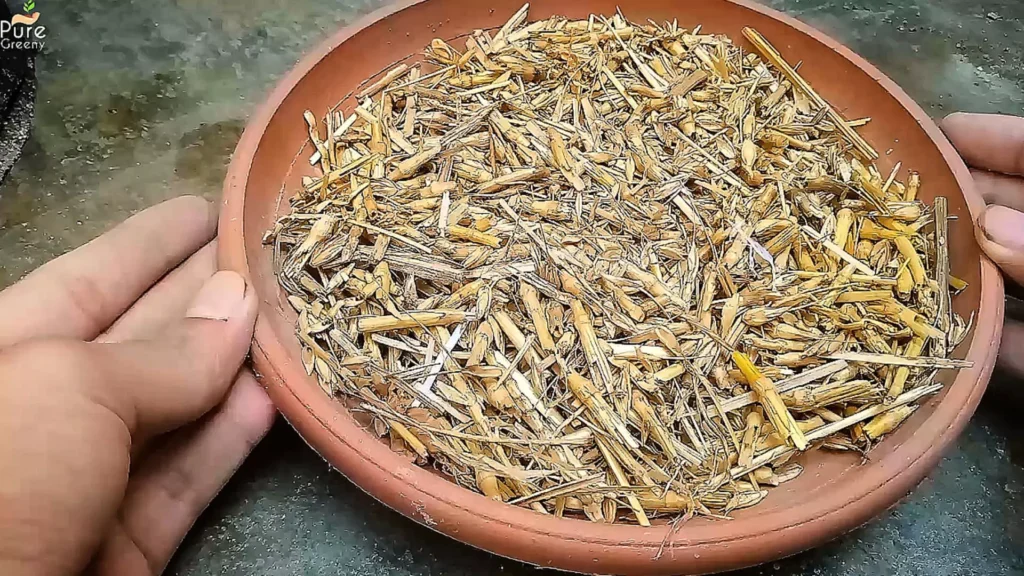
Mulching Plants also Provide Them Nutrients, First The Mulch Saves The Nutrients of The Soil, By Preventing Erosion, & If Your Mulch is An Organic Thing, it get Decomposed Over The Time, & Shreds Into The Soil, Providing Nutrition To The Roots.
Weed Supression:
One Big Benefit of Mulching Plants Is The Weeds Supression. Weeds cant Grow Over Mulch, & Hence The Nutrients Will Stay Available to The plant.
Natural & Organic:
Mulching Is also a Natural & An organic Thing, If You Are Preferring Organic Gardening, You can use Some Organic Mulching Source & Save Your Plants.
Stable Temp.:
Another use of Mulch Is The Temperature Control. Layer of Mulch Works as an Insulator, The Temperature Of The Environment Wont get Into The Soil, The Soil Stays Warm & Your Plant Keeps On Growing. This Stability Of Temp. Is More Useful For Cold Climate Areas, While In Temerate Area, This Could be Problem.
Pest Control:
Mulching also Reduces The Chance of Pests Attack, not In All cases, But Mulching Disrupts The ideal Habitat of Soils Pests, Resulting In their removal. So Again its a Very Useful Thing,
What Can Be Used For Mulching?
There are many Organic & Inorganic materials You can Use as a mulch, Every material Have Its Own Properties, But Here is a general List of These Materials.
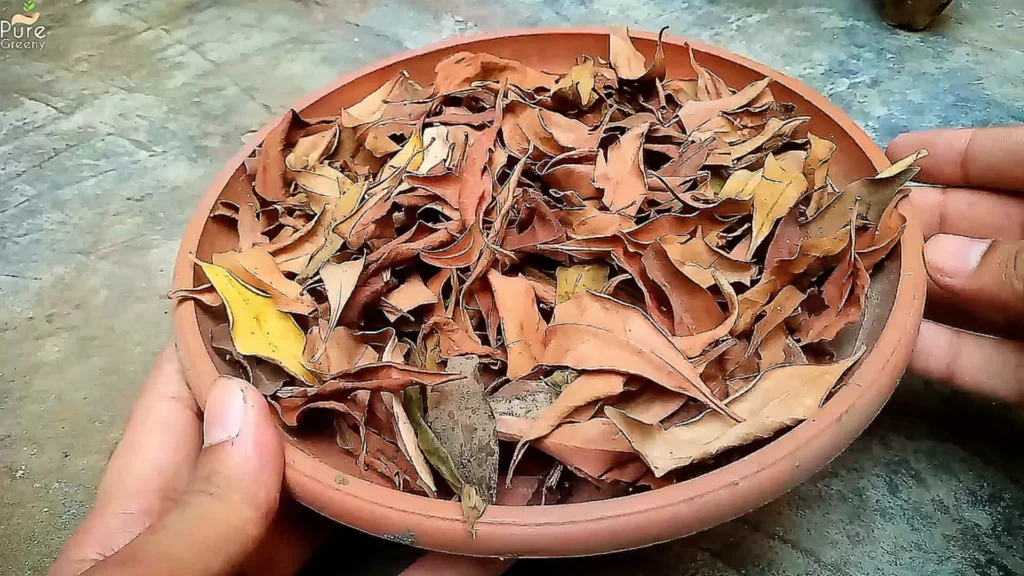
- Dry Leaves are carbon Source, The Whole Forest Ecosystem Works On This Kind Of Mulch, that’s Why It Can be A Safe Material.
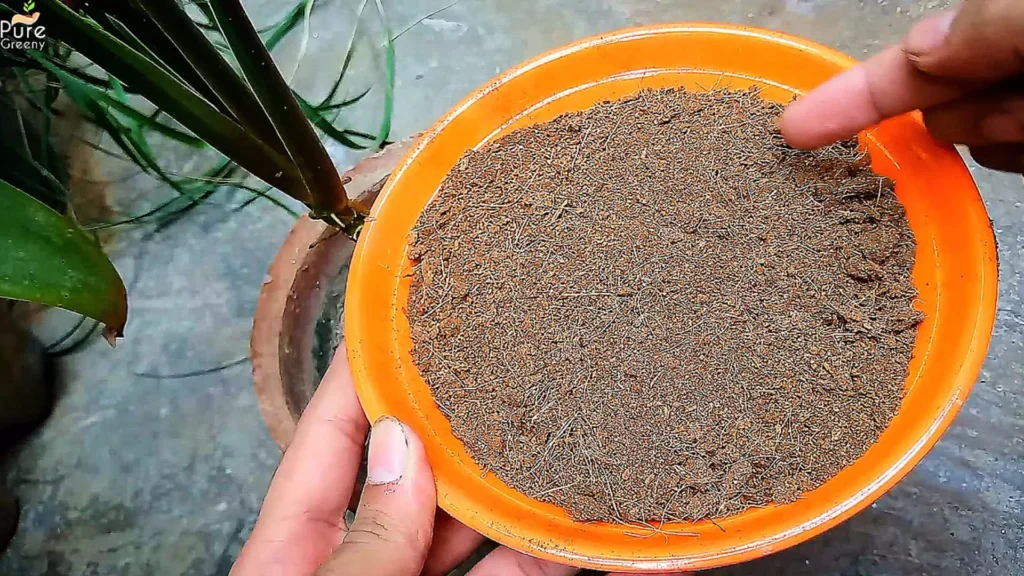
- Coco Peat & Cococoir Are also Used very Widely, Both Are Made From Coconut Shell, They Retain alot of Mositure & Decompose very Slowly.
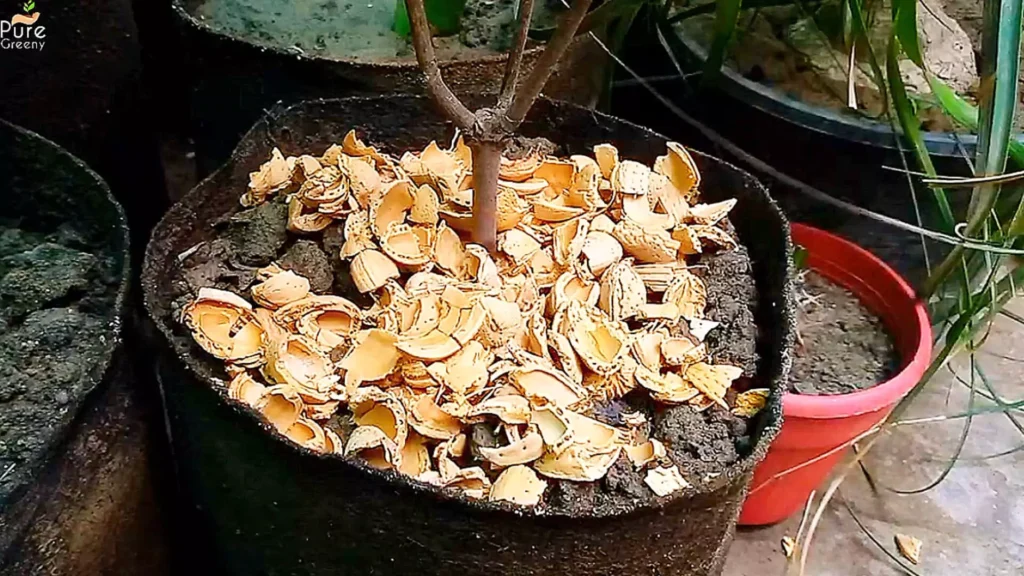
- You Can Also Nut Shells, Like Almond, Walnut, peanut Shells To Make a Layer On The Soil, They are very protective, But Decomposes Very Slowly.
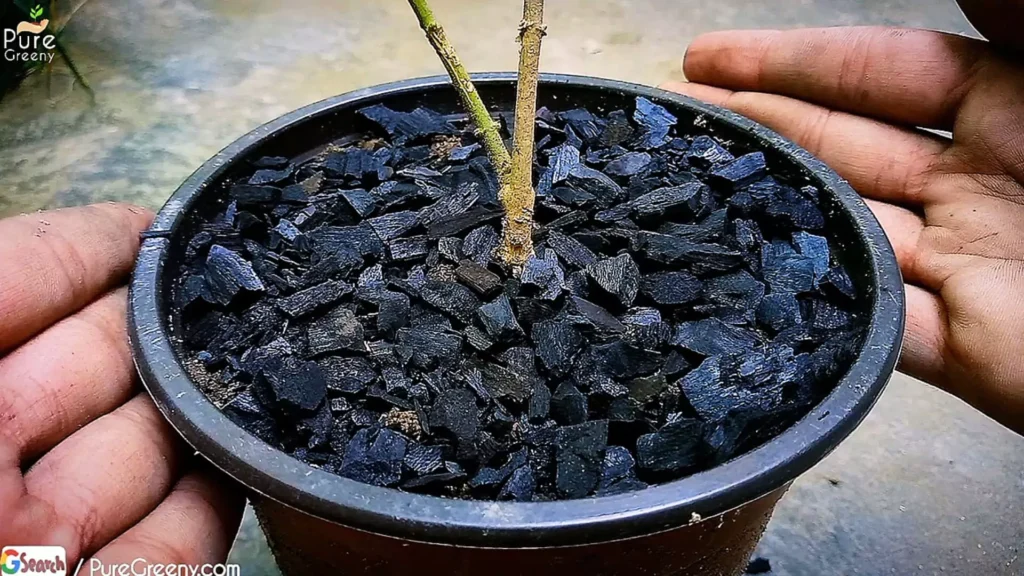
- Biochar A Charcoal Like Substance, But Not Charcoal can be Used As Well. Its a great Mulching Source, its also An Organic Thing. Make Only a Thin Layer. You Can learn Indepth About Biochar Benefits & Uses for Plants From Here.

- You can Also dried Plants Scarps, like Wheat Staws, Wood Chips Etc. To Cover The Soil Surface.
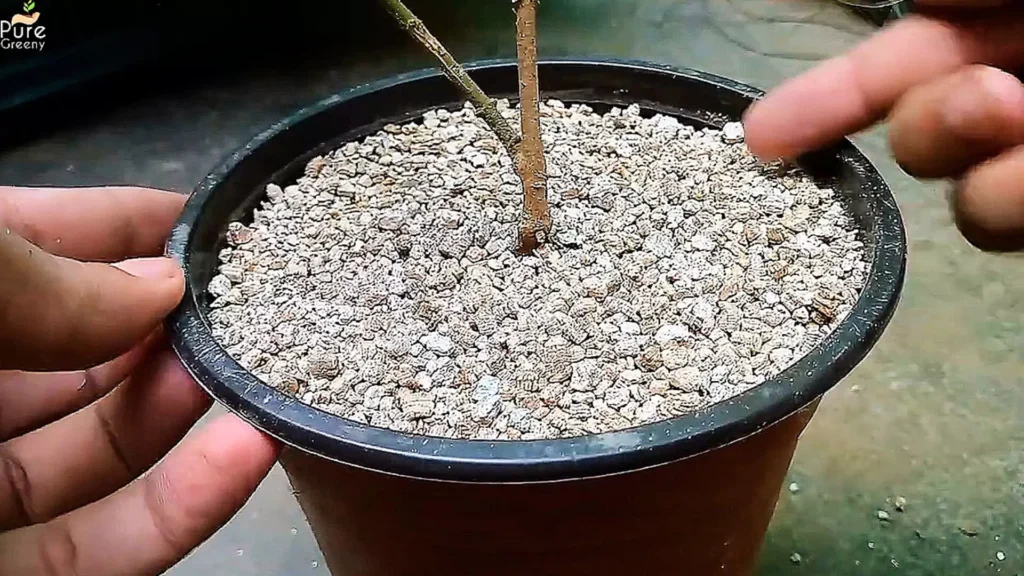
- Another Orgnanic Mulching material is The Vermiculite, its also a Natural Occuring material, But its a Little expensive, It Doesnt Decompose Quickly, Vermiculite is also an Amazing Soil Amendment, You can Also Learn all About Vermiculite From Here.
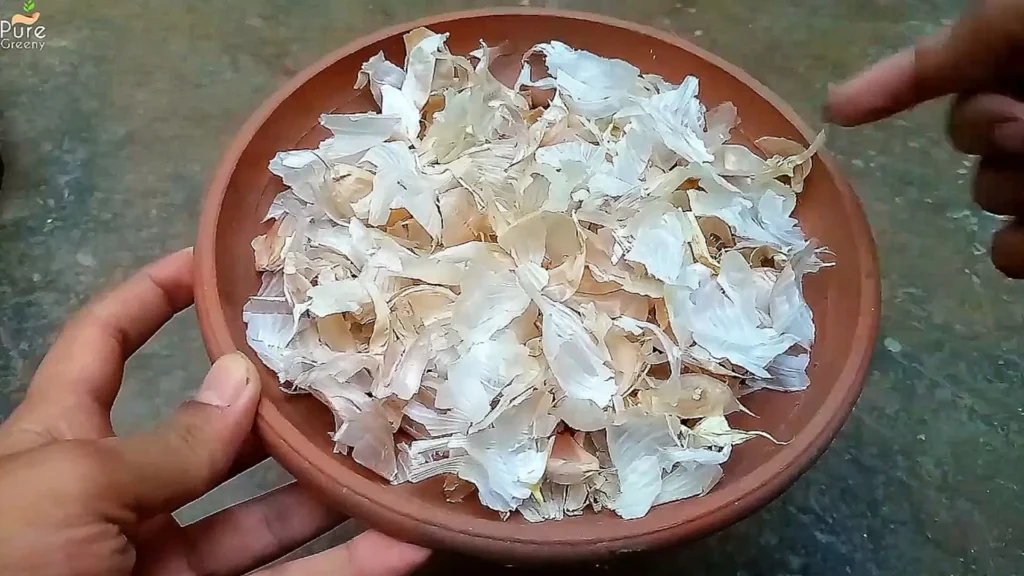
- You Can Also make a Layer of Vegetable Peels On The Soil Surface, But This Can Attract Many Pests, & Can be harmful, if done incorrectly.
- About Inorganic Mulchin Material, Like Rocks, pebbles, rubber Mulch Etc All are used for Mulching. They Dont Decompose, Their Main Purpose is decoration & Durability etc You Can also take a Look to this Link To Buy Different kinds Of organic & Inorganic Materials.
How To Properly Do The Mulching?
WhatEvery Material You Use, The Right Way To do The Mulching Is Most Important, its Really Simple. You have to make a Layer of The Mulching Around The Trunk Of The plant, Keep a Little Gap from The main Stem, Either Your Plant is In The Ground, Or In a Pot, In Both Area, Mulching Provide Many Benefits.
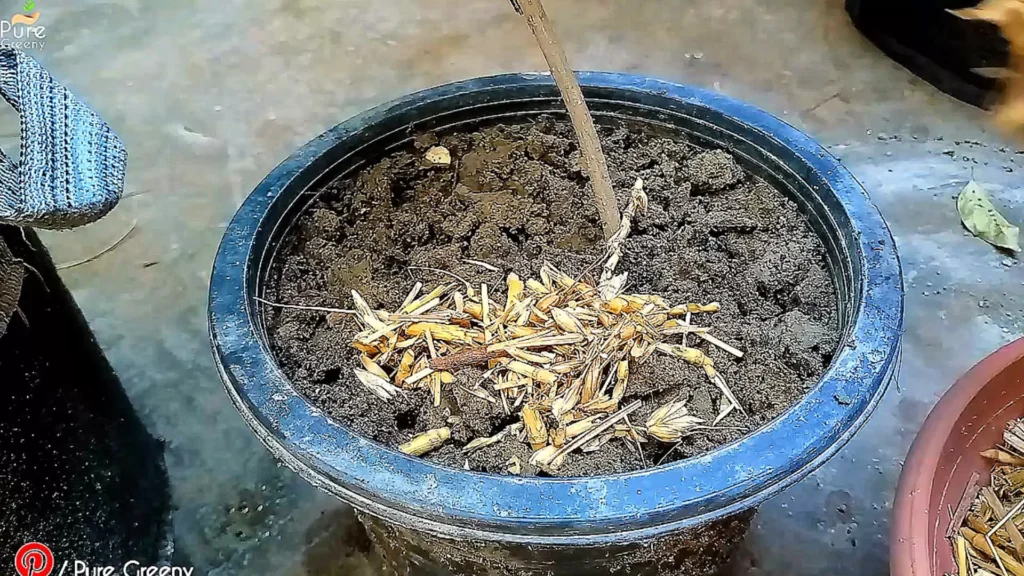
The Thickness of The mulching layer Depends On Type of Material, like Biochar is Reactive To the Soil, that;s Its Used Very less & only A Thin Layer is Enough To use, Otherwise this can damage Your Plants.
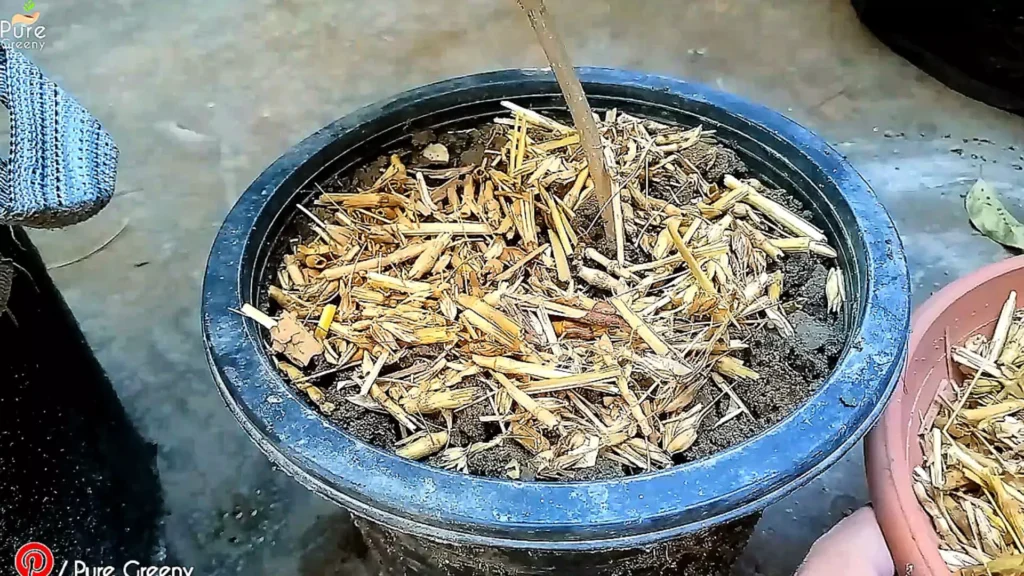
Mulch materials Like Leaves, Wheat Straw, nut Shells, Vermiculite , cocopeat & choir etc All Are Safe To use, You can make an Inch of Their Layer, or Even a 3 inch layer Of These Mulching Wont Harm Your plants.
Does Every Plant Likes Mulching?
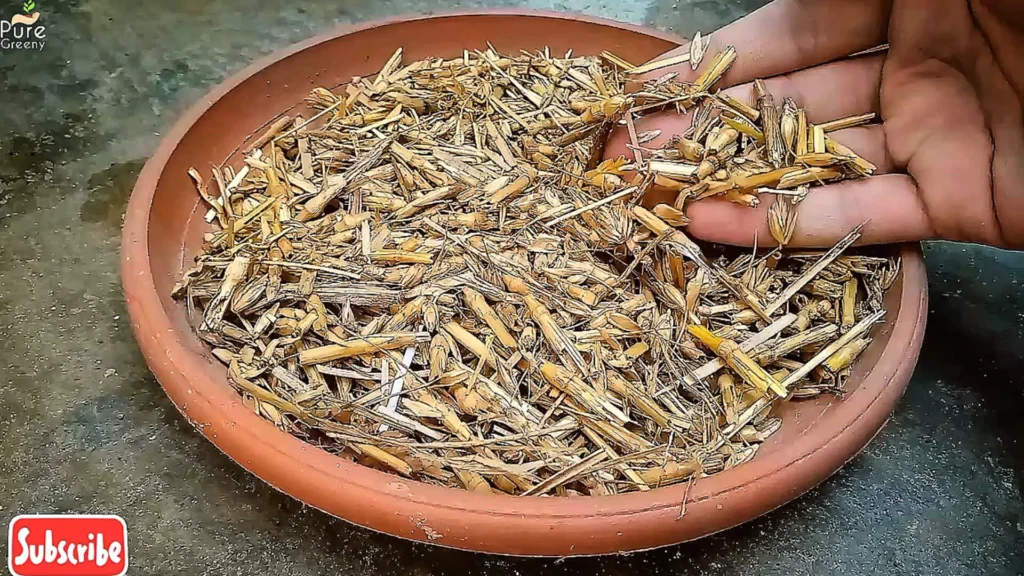
Now the question Is Does Every Plant Requires Mulching, So The Answer Is Simple, Mulching is Most useful For Dry Areas To Save The Soils Moisture, For Example In Drought Like conditions. Also For Moisture Loving Plants.
Because They Likes More Moisture In The soil. But For cacti Succulents, Mulching could be Harmful, More Moisture in The Soil Can Effect Their Growth & even Life. For Other plants, Like vegetables, Seasonal Flowers & House Plants, You can Use Mulching But Only With a proper Technique, Better To Use Some Dry leaves only. & Dont If You are a beginner.
Drawbacks of Mulching For Plant?
There are Also Some Side Effects Or Drawbacks of Mulching plants, You Should Must Know About.
Water Logging & No Estimation:
With Mulching, You Wont Have An Idea How Wet Is Your Soil, & You May Water Overly, so With Mulching, You have To Be Extra Careful. You can Dip Your finger In the Soil, To See How Wet it is?
Ph Issues:
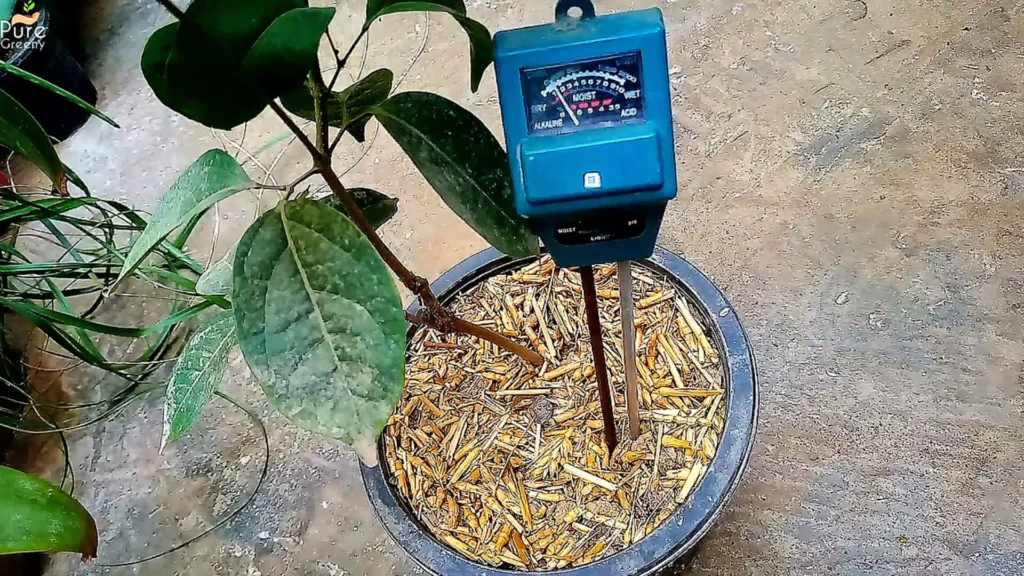
If You Are Using a Reactive Material Like Biochar For Mulching, This can Also influence The Ph of The Soil, Even If You Use In a Correct Way, So Its Better If You Use Other Safe Mulching materials Like dry leaves, wheat Straw, Rice Husk, & Cococoir.
Fungal Growth:
Another Side Effect of Mulch Is The Fungal Growth, A Little Bit More Moisture In The Soil can Cause Fungal Growth, & Problems Like Root rot, Stem rot. Its most Important, To Check the Moisture level below the Mulch Material & Then Water Accordingly.
Pest Attraction:
If Your Mulching material is Decomosing, This can Aslo Attract Pests & Insects over The Mulch, So Be Careful About that.
Lesser Arreation:
Mulching Overly Can Also Cause Lesser Arretion In The Soil, So Be carefull About That, The Safest Form of Mulch Is Cococoir, That Decomposes very Very Slowly, Its aslo Non reactive To The Soil & Dont influence The ph. You can Also Buy a Good Mulching material From This.
Its All About mulching Plants, & Its benefits, To Learn About biochar & Verimculite You can Follow These Guides.

